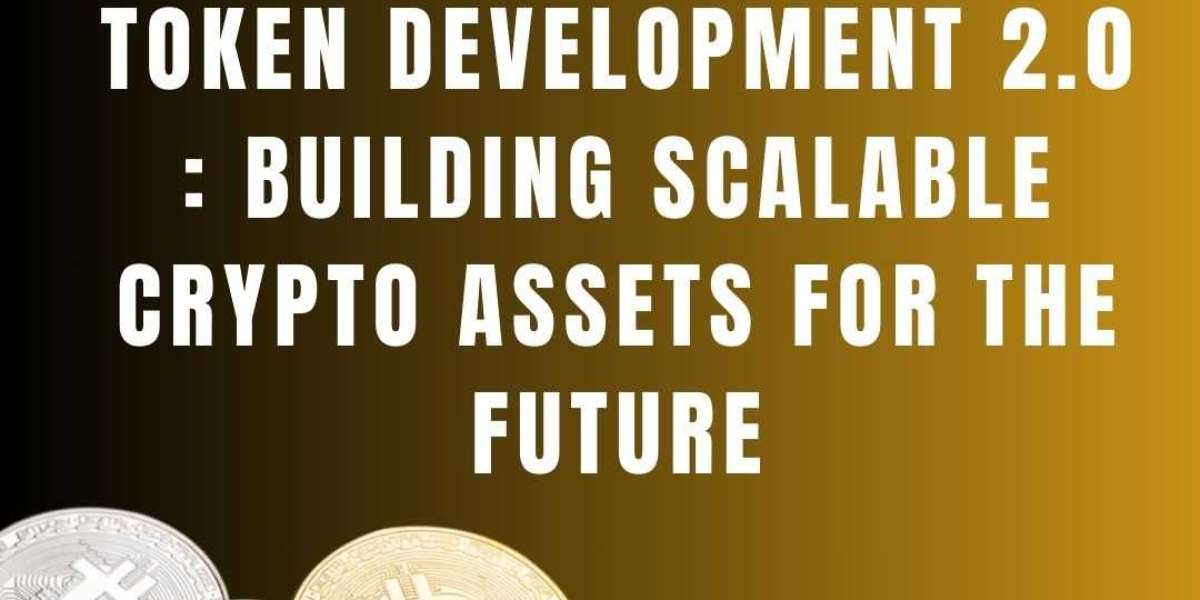What is Token Development 2.0?
Token Development 2.0 refers to the advanced process of designing and deploying crypto tokens that are not only functional but also scalable and future-proof. Unlike the early days of token creation, where basic functionalities sufficed, modern token development focuses on:
- Scalability: Ensuring the token can handle high transaction volumes without compromising performance.
- Interoperability: Designing tokens that can operate seamlessly across multiple blockchain networks.
- Security: Incorporating advanced security features to protect against vulnerabilities.
- Utility: Tailoring token functionalities to specific use cases, whether for governance, payments, or asset tokenization.
Key Features of Scalable Token Development
- Smart Contract Optimization: Efficient and error-free smart contracts are the backbone of token scalability. Developers focus on minimizing gas fees and ensuring seamless execution on blockchain platforms like Ethereum, Binance Smart Chain, and Solana.
- Cross-Chain Compatibility: With the rise of multichain ecosystems, scalable tokens are designed to function across various blockchains, leveraging technologies like bridges and interoperability protocols.
- Custom Token Standards: Beyond the popular ERC-20 or BEP-20 standards, Token Development 2.0 explores customized standards that cater to specific business needs.
- High Throughput: Scalable tokens are optimized to handle thousands of transactions per second (TPS), addressing issues like network congestion and latency.
- Tokenomics Design: A well-thought-out tokenomics strategy ensures the token’s value and usability grow sustainably over time.
Applications of Scalable Crypto Tokens
- Decentralized Finance (DeFi): Scalable tokens power DeFi platforms by enabling efficient lending, borrowing, staking, and yield farming.
- NFT Ecosystems: High-performance tokens support NFT creation, trading, and integration into gaming and metaverse platforms.
- Enterprise Solutions: Businesses can use tokens for loyalty programs, supply chain management, and digital identity verification.
- Decentralized Autonomous Organizations (DAOs): Tokens enable governance and voting mechanisms, ensuring decentralized decision-making.
- Asset Tokenization: Real-world assets like real estate, art, or commodities can be tokenized for fractional ownership and trading.
Benefits of Token Development 2.0
- Improved Efficiency: Scalable tokens reduce transaction times and costs, making blockchain applications more practical and user-friendly.
- Global Accessibility: Tokens can be accessed and utilized by users worldwide, fostering financial inclusion.
- Future-Proof Designs: Adaptable tokens are ready to integrate with emerging technologies and trends.
- Enhanced Security: Robust smart contracts and token infrastructure mitigate risks of hacks and fraud.
Why Businesses Should Invest in Scalable Token Development
For businesses aiming to leverage blockchain technology, scalable token development offers immense potential. It enables seamless integration with existing operations, opens up new revenue streams, and positions organizations at the forefront of digital innovation. By adopting Token Development 2.0, businesses can future-proof their offerings, ensuring adaptability in a rapidly changing technological landscape.
Partnering with Experts for Token Development
Developing scalable crypto tokens requires expertise in blockchain platforms, smart contract programming, and tokenomics. Partnering with a professional token development company ensures that your project is designed to meet both current and future demands. Look for developers with experience in multichain environments, security audits, and innovative token solutions tailored to your industry.
Conclusion
Token Development 2.0 is not just about creating tokens; it’s about building robust, scalable, and future-ready crypto assets that drive innovation and efficiency. As blockchain technology continues to transform industries, the need for advanced token solutions will only grow.













